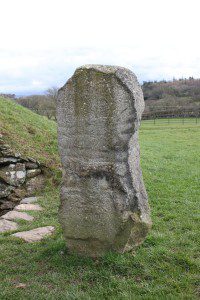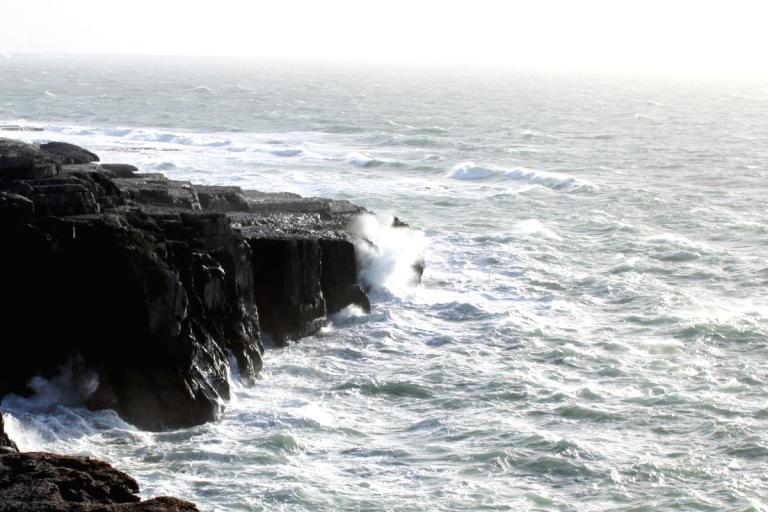 Can we trust the Gods? Should we trust the Gods? Are open-ended commitments safe? Does casual worship create obligations we may later regret?
Can we trust the Gods? Should we trust the Gods? Are open-ended commitments safe? Does casual worship create obligations we may later regret?
I’m seeing a lot of conversation around these topics. Some Pagans act as if the Gods are our kindly grandparents. Others act as if the Gods are as deadly and unpredictable as rattlesnakes. Most, I think, are somewhere in between, though there’s enough polarization to give a beginning polytheist reason to pause.
Pausing to think about what you’re doing and why is a good thing. Being afraid to move forward is not.
Let me start by repeating what regular readers of this blog already know: I’m a polytheist. Call me a devotional polytheist or a hard polytheist or just a plain ol’ polytheist – I see the Gods as real, distinct, individual beings with Their own personalities, likes, dislikes, goals, and areas of responsibilities. Their powers are immense but still limited. I don’t see Them as archetypes or metaphors and I don’t see Them as aspects of one great universal God/dess. I have experienced Them as individuals so I order my life as though They’re individuals.
There is a place in Paganism and polytheism for those who simply want to honor the Gods and live ordinary lives. This was clearly true in ancient times and it’s still true today. Not everyone is called to be a priest or a devotee. Not everyone has the skill or desire to become a mystic. If that’s you, honor the Gods, honor your ancestors, and honor the spirits of the place where you live, then live a virtuous life in the ordinary world.
For those of us who are called to be devotees and priests, things get a little more complicated. OK, a lot more complicated.
Any talk of “the Gods” is necessarily general. Not only are They many and diverse, so are our experiences of Them. What follows are the thoughts and experiences of one polytheist – me. As they say, your mileage may vary.
We can trust the Gods are virtuous – that’s one of the defining characteristics of a God. But “virtuous” doesn’t mean kindly or meek. This is quite clear when you contemplate the virtues of the Morrigan. Beyond that, there are many virtues and sometimes they conflict with each other, as anyone who’s ever been less honest in order to be more kind (or vice versa) understands all too well.
As others have said, we can trust the Gods to be who and what They are. Morrigan will be Morrigan, Danu will be Danu, and Odin will be Odin. Coyote will be Coyote. Learn who and what They are and set your expectations accordingly.
We can trust the Gods to have the perspective of Gods: high-level and long-range. Their goals aren’t always clear to humans with our shorter, more limited perspectives. If They have plans, They rarely share them, at least not with me. I don’t get to see the blueprints. Over time, I’ve gotten an intuitive picture of what a few of Those I work with are building, but all They ever tell me is “here, stack these bricks.” I can see the need for stacking bricks, and besides, I’ve found I kinda like it.
We can trust the Gods to have the knowledge of Gods: not perfect knowledge, but more than our own. They seem to have a better idea of what we’re capable of than we do… which means They sometimes ask for things we think are impossible when they’re merely difficult.
A particular deity may be fond of you and may value your skills. That doesn’t mean They’re going to make things easy for you. If you have a horse, you may love it and care for it, but you’ll still have it pulling a plow through the fields all day in the hot sun during planting season.
If the Gods are training you for something, it’s a safe bet it’s to prepare you for work in Their service. You may learn and grow from the experience (I certainly have) but don’t expect Them to be your teachers. (psssst – your spiritual growth is your responsibility)
What about general oaths of service and unspecified promises?
Manannan mac Lir visited King Cormac mac Airt in disguise. He carried an apple branch with silver apples that when shook brought deep peace to all who heard it. Cormac wanted the branch desperately – Manannan offered to give it to him for three favors of His own choosing. Cormac accepted, but was devastated when Manannan took Cormac’s daughter, then his son, then finally his wife.
Cormac followed them back to Manannan’s land where he learned His true identity, and found his family unharmed. They were all returned to Cormac’s kingdom and Cormac was allowed to keep the magical branch.
This is a greatly condensed version of a story with many meanings. But its meaning for our purposes here is clear: be careful how you bargain with the Gods. If you make open-ended offers, They may take you up on them in ways you’d rather They not. If you ask Them for favors, They may ask you to reciprocate in unexpected ways.
On the other hand, if you keep your word and conduct yourself honorably, you can expect the Gods will do so as well.
If you make a promise and then break it, well… I wouldn’t want to be you.
So why would you want to associate with a being who can make your life miserable if They so choose? Why would you want to commit yourself to service to and with a powerful being who’s pretty much guaranteed to put Their needs in front of yours?
For the same reason people have committed to serving their tribes and nations and Gods since we were barely human. Because we want to be a part of something bigger than ourselves. Because we want to build something that will endure long after we’ve left this world. Because we want to leave the world a better place than we found it.
Because we’ve been called, and not answering that call means a part of ourselves will die.
These are my experiences with a handful of Gods. My experiences have been quite positive, which is one of the reasons I write about them. On the other hand, I have to remember the Gods aren’t kindly grandparents or friendly professors. They are divine beings of immense power and They are not to be taken lightly.
So can we trust the Gods? We can trust them to be who They are. Let us strive to be who we are, fully and honorably.

















